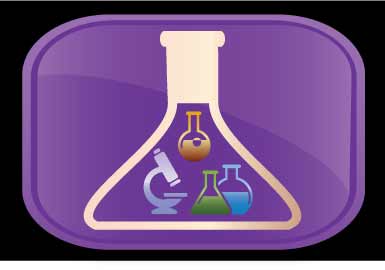Biotech Startups Rely on Different Types of Funding
2012 Directory

Private foundations are also filling this void. For example, a five-year $12.5 million grant from the Bill and Melinda Gates Foundation to Amyris Biotechnologies (Emeryville, California) is funding development of biotechnology methods to produce the anti-malaria drug artemisinin. Artemisinin is currently in short supply and improved production methods are needed.
University Support
Since 2004, UCTTO has deployed $11.5 million to fund 139 projects according to Rick Silva. Eight of these have become startup firms with equity. Another 44 have been licensed or optioned by investors.
UCTTO projects have received $53 million from other sources for technology development and $173 million in venture capital investment. Perhaps the biggest success story is Taligen Therapeutics (Aurora, Colorado). Started in 2004 with UCTTO seed money, there were four rounds of venture capital funding totaling over $70 million. In 2010 the first patient was treated with Taligen's drug for Marchiafava-Micheli syndrome, a rare life-threatening blood disease. In 2011 Alexion Pharmaceuticals acquired Taligen for $111 million.
State and Local Support
MOSIRA is the Missouri Science and Innovation Reinvestment Act. CEO Derek Rapp of startup Divergence, Inc. notes, "The passage of MOSIRA is a big step in promoting formation and growth of startups." It enables the state "to provide a predictable, stable source of funding for building the entrepreneurial infrastructure necessary to support the growth of science and innovation companies in Missouri," says Donn Rubin, executive director of The Coalition for Plant and Life Sciences.
This infrastructure includes incubator space, space for post-incubator companies, multi-tenant space, pilot or full-scale manufacturing space, and research park development for clustering young and mature companies. Rubin notes that MOSIRA enables Missouri to provide the matching funds necessary to attract new jobs and investment to the state.
BioSTL, formed last September in the St. Louis area, is a new regional organization aimed at transforming local innovations into new biotechnology companies. Washington University in St. Louis, BJC HealthCare, and the St. Louis Life Sciences Project have provided $30 million in funding for the next five years.
Venture Capitalists
Venture capitalists are still funding some biotechnology startups. Mirina Corp. recently received funding from Accelerator, a Seattle-based biotechnology investment company. Mirina is developing biotechnology that could be useful in treating cancer. And Google Ventures funded a Lebanon, New Hampshire biotechnology startup called Adimab. It uses technology developed by the Massachusetts Institute of Technology and Dartmouth College to develop genetically engineered versions of specialized human body proteins.
Divergence, Inc. also relied on venture capitalists. It began operations in 1999 in St. Louis to develop products to control and prevent plant root parasites called nematodes. Monsanto acquired the company in early 2011 for $76 million.
Project Announcements
Luna Labs USA Expands Charlottesville, Virginia, Operations
03/25/2025
Sun Pharmaceuticals Plans Princeton, New Jersey, Headquarters
03/18/2025
Green Heath Laboratories Plans Foley, Alabama, Testing Operations
02/04/2025
Haleon Upgrades Richmond, Virginia, R&D Operations
01/28/2025
AstraZeneca Expands Mississauga, Ontario, Canada, R&D Operations
01/27/2025
Germany-Based Groninger USA Plans Charlotte, North Carolina, Operations
01/25/2025
Most Read
-
Run a Job Task Analysis
Q4 2024
-
The Location Economics of Advanced Nuclear
Q1 2025
-
39th Annual Corporate & 21st Annual Consultants Surveys: What Business Leaders and Consultants Are Saying About Site Selection
Q1 2025
-
NEW NIMBYism: A Threat to The U.S. Economy
Q4 2024
-
Power, Policy, and Site Selection in 2025
Q1 2025
-
Why Workforce Readiness Can’t Wait
Q1 2025
-
Designing Beyond the Assembly Line
Q1 2025



